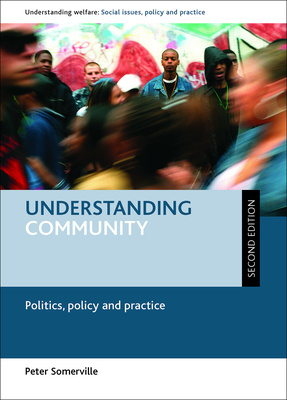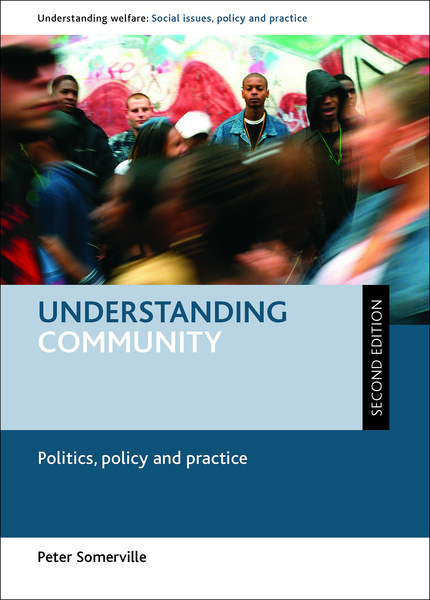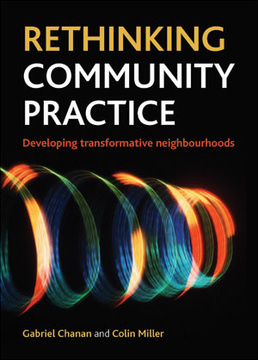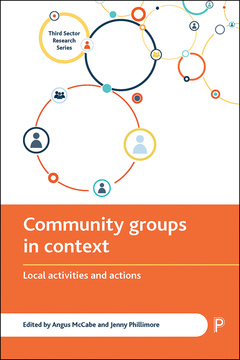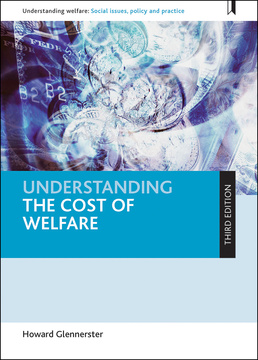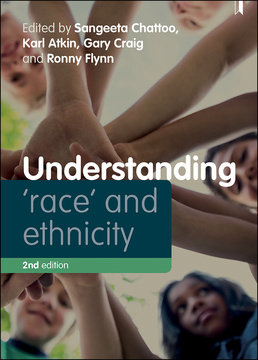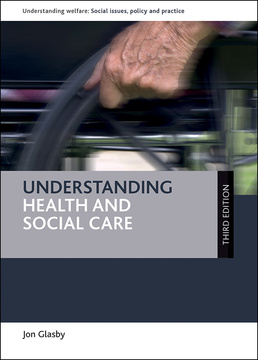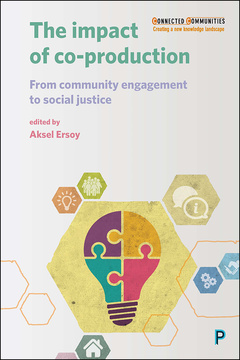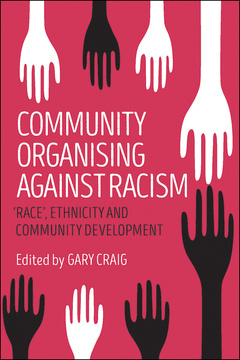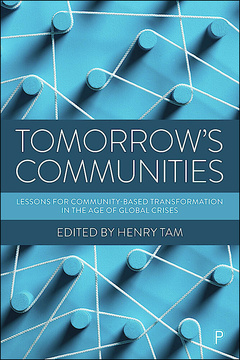Published
Apr 25, 2016Page count
272 pagesEdition
2nd EditionBrowse the series
Understanding Welfare: Social Issues, Policy and PracticeISBN
978-1447316084Dimensions
240 x 172 mmImprint
Policy PressPublished
Apr 25, 2016Page count
272 pagesEdition
2nd EditionBrowse the series
Understanding Welfare: Social Issues, Policy and PracticeISBN
978-1447316077Dimensions
240 x 172 mmImprint
Policy PressPublished
Apr 25, 2016Page count
272 pagesEdition
2nd EditionBrowse the series
Understanding Welfare: Social Issues, Policy and PracticeISBN
978-1447328070Imprint
Policy PressPublished
Apr 25, 2016Page count
272 pagesEdition
2nd EditionBrowse the series
Understanding Welfare: Social Issues, Policy and PracticeISBN
978-1447328063Imprint
Policy PressThis substantially revised edition of a highly topical text draws upon theory from Marx and Bourdieu to offer a clearer understanding of community in capitalist society. The book takes a more critical look at the literature on community, community development and the politics of community, and applies this critical approach to themes introduced in the first edition on economic development, learning, health and social care, housing, and policing, taking into account the changes in policy that have taken place, particularly in the UK, since the first edition was written. It will be a valuable resource for researchers and students of social policy, sociology and politics as well as areas of housing and urban studies.
"Very clear introduction to concepts and issues surroudning community linking theoretical models very clearly with practice examples." Dexter duBoulay, Coventry University
"It is topical, well referenced and contains plenty to consider..a useful text for those studying social policy, sociology, community development, urban regeneration and social work." Journal of Social Policy
"Theory, policy, politics, and practice are all woven thoughtfully together in this impressive account: it should be a must‐read for anyone concerned with getting to the core of the relationship between the state and its subjects." Social Policy & Administration
"In the second edition of his Understanding community, Peter Somerville sets out to restore rigour to the language of community, rendering it once again a purposeful analytical framework as well as a realisable social goal." Housing Studies
"Not only extremely valuable as a resource for students, but also a powerful contribution to debates about the nature of community and its potential as driver of political and social change" Allan Cochrane, The Open University
"An exhilarating discussion, which opens up new ways of thinking about an old problem." Journal of Regional Science
"Both pertinent academically and timely" Susie Cox, De Montfort University
"In developing his conception of beloved community, Peter Somerville brings a fresh and radical perspective to communitarian theory and practice. This book will inspire and provoke readers in equal measure." Jonathan Davies, University of Warwick
"Radically develops ideas explored in the first edition, integrating wide-ranging and nuanced theoretical investigation with compelling argument for the possibility of 'beloved community' and a way beyond the austerity consensus." Jonathan Davies, De Montfort University
"This book is well-written, well-structured and easy to engage with as a result." Dr Stuart Cameron, The University of Bolton.
"A thorough and theoretically grounded examination of community. The thematic sections on policing and housing are particularly useful in helping students apply ideas of community in different contexts. An excellent resource." Marina Bush, Anglia Ruskin University
Peter Somerville is Professor of Social Policy and Head of the Policy Studies Research Centre at the University of Lincoln, England. He has researched and published widely on issues of housing, policing, race equality, substance misuse, homelessness, cooperative enterprise and community governance.
PART I;
The nature of community;
Capital, class and community;
Political community under capitalism;
Governmental approaches to community;
PART II;
Community economic development (CED);
Community learning;
Community health and social care;
Housing and community;
Community policing;
Conclusion.







